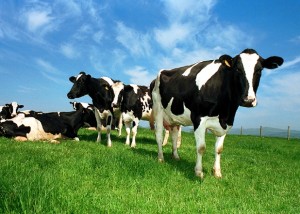 For most of the last century New Zealand has led the world in efficient production of agricultural products. By the 1950s New Zealand had one of the highest standards of living in the world. This comfortable existence was shaken by the rise of agricultural protectionism and support mechanisms in the 1970s. New Zealand was shut out from traditional markets and needed to compete with subsidised exports that drove down international commodity prices. This began a long decline in New Zealand agriculture, highlighted by Prime Minister, David Lange’s, famous statement that “Agriculture in New Zealand is a sunset industry and manufacturing and tourism will take over.”
For most of the last century New Zealand has led the world in efficient production of agricultural products. By the 1950s New Zealand had one of the highest standards of living in the world. This comfortable existence was shaken by the rise of agricultural protectionism and support mechanisms in the 1970s. New Zealand was shut out from traditional markets and needed to compete with subsidised exports that drove down international commodity prices. This began a long decline in New Zealand agriculture, highlighted by Prime Minister, David Lange’s, famous statement that “Agriculture in New Zealand is a sunset industry and manufacturing and tourism will take over.”  Fortunately for New Zealand, the demand for our agricultural products is increasing. The rapid urbanisation and economic growth in Asia has seen unprecedented growth in a middle class that is driving demand for New Zealand’s meat and dairy products
Fortunately for New Zealand, the demand for our agricultural products is increasing. The rapid urbanisation and economic growth in Asia has seen unprecedented growth in a middle class that is driving demand for New Zealand’s meat and dairy products
While this is good news, it also presents a significant challenge. How can New Zealand turn this period of high agricultural commodity prices into sustainable long-term prosperity? New Zealand, potentially, risks becoming dependent on China in the same way it was dependent on Great Britain for most of the 20th century. Once again, New Zealand may become vulnerable to volatile international commodity prices and changes in foreign countries’ agricultural policies.